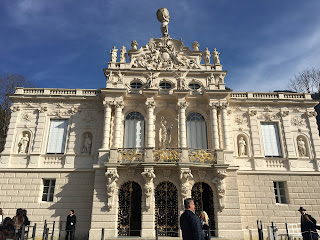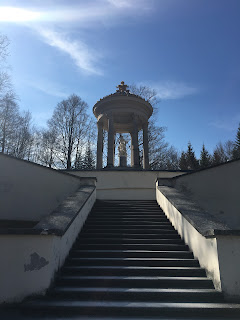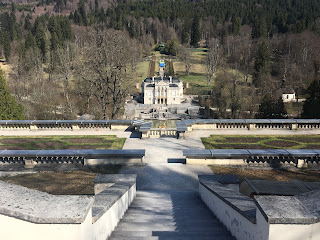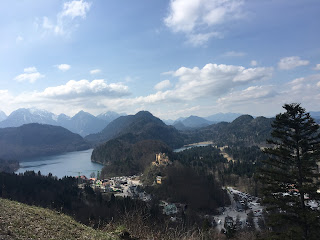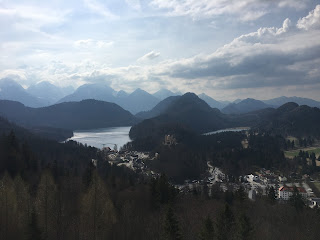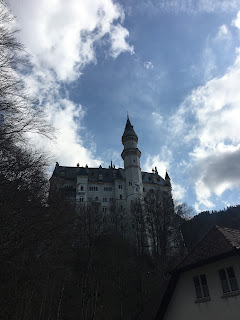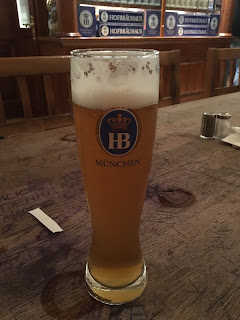Our final day in Munich was to be a short one, as we flew back to our respective cities that evening. As a last minute decision, partly the result of encouragement from my father, Cousin and I decided to book a tour to Dachau. I had debated this idea for a little while before presenting it to her. I think that it is incredibly important to revisit history, both good and bad. And when I was young, I had a relatively morbid fascination with WWII and Holocaust history. But to be honest, I wasn't sure how I would feel actually setting foot in the remains of a Concentration Camp. In hindsight, I am not sure that I would have chosen to make it my final activity of the weekend. But other than that, I am one hundred percent sure that I made the right decision to go.
When I hear the word Dachau, I immediately think of the Concentration Camp. However, it is also a normal suburban town outside of Munich, Germany. This in and of itself made it extremely bizarre to be standing where such atrocities took place and see a normal house bustling with family members just a stone's throw away. However, the second I exited the bus and walked onto the grounds, I felt like I had stepped back in time and a strange silence settled over the camp. It is a vast, empty, eery place to walk around. It was also the first truly cloudy and gloomy day of the weekend, adding to the grim atmosphere. Most people tour around with guides so as to receive as much information as possible. I noticed a few people listening to audio guides here and there, but for the most part it was school groups on a Monday morning. I learned that it is mandatory for German school children to visit a Concentration Camp as part of their curriculum, to ensure that the same thing never happens again.
I won't say much about what we learned. We were fortunate enough to have an amazing guide who knew his history and gave us an honest thoroughly un-sugarcoated version of events. We walked through the museum on site, the open space where line-ups and check-ins were a daily occurrence. We were led through the recreated barracks and back to the gas chambers and several modern memorials constructed by various religious sects. It was all that I had read about and more, with stories of torture and anguish, stunning immorality and brutal cruelty. I have nothing particularly unique to say about the experience because I could never come close to imagining what the real circumstances must have been like. But I was genuinely astonished at how affected I was by standing there amidst it all with the stories and images washing over me.
The feeling didn't leave me for hours and even days to come. I chose not to take any pictures other than one of an artist sculpture placed right in front of the main hall. And as I heard about all of the abused members of humanity, treated so inhumanely due to race, color or creed I certainly drew very clear connections to mentalities currently running rampant in our own society. Less than a century later, you can see leaders rising to power based on fear and ignorance. You can see unfathomable acts carried out by people who never in a million years thought they would be capable of such a thing. And you can see frightening intolerance still reigning supreme in so many cultures. It is important to revisit history, to see places like this, and most crucially, to be educated. Travel is about experiencing other cultures, learning lessons, and being open to all that the world has to offer. We really must never forget.








